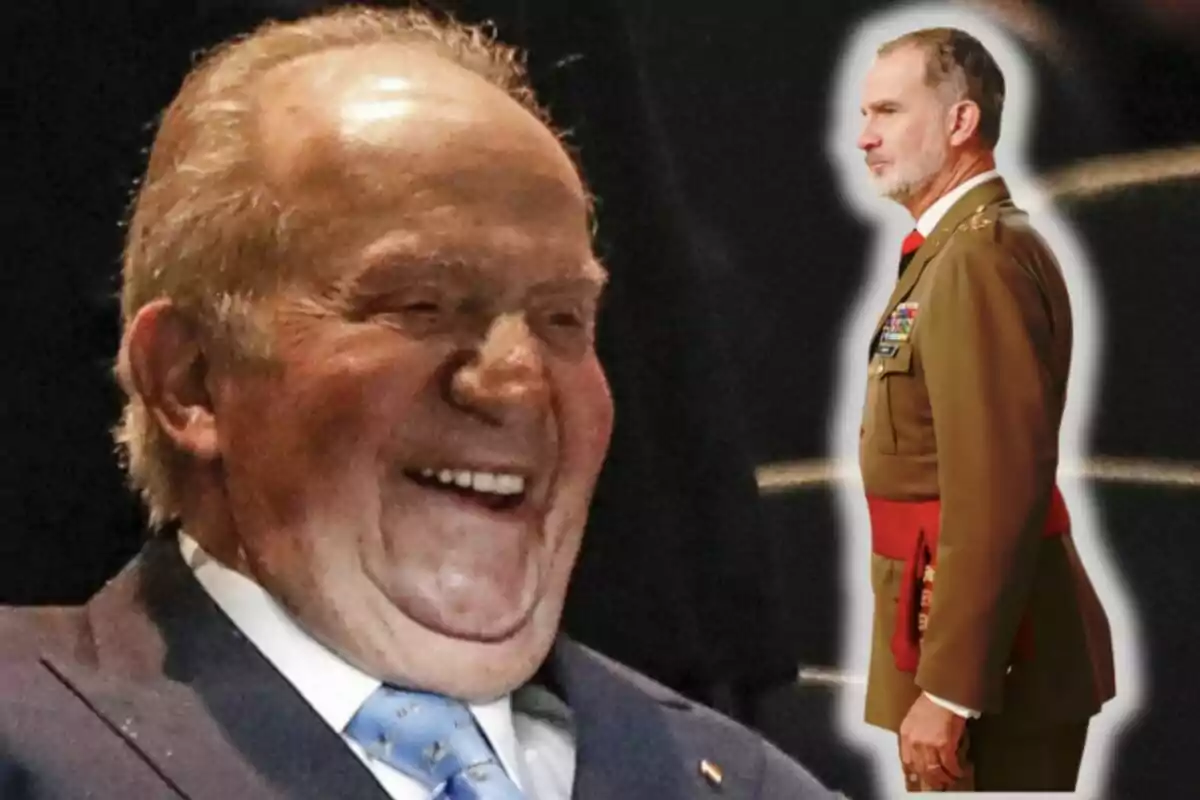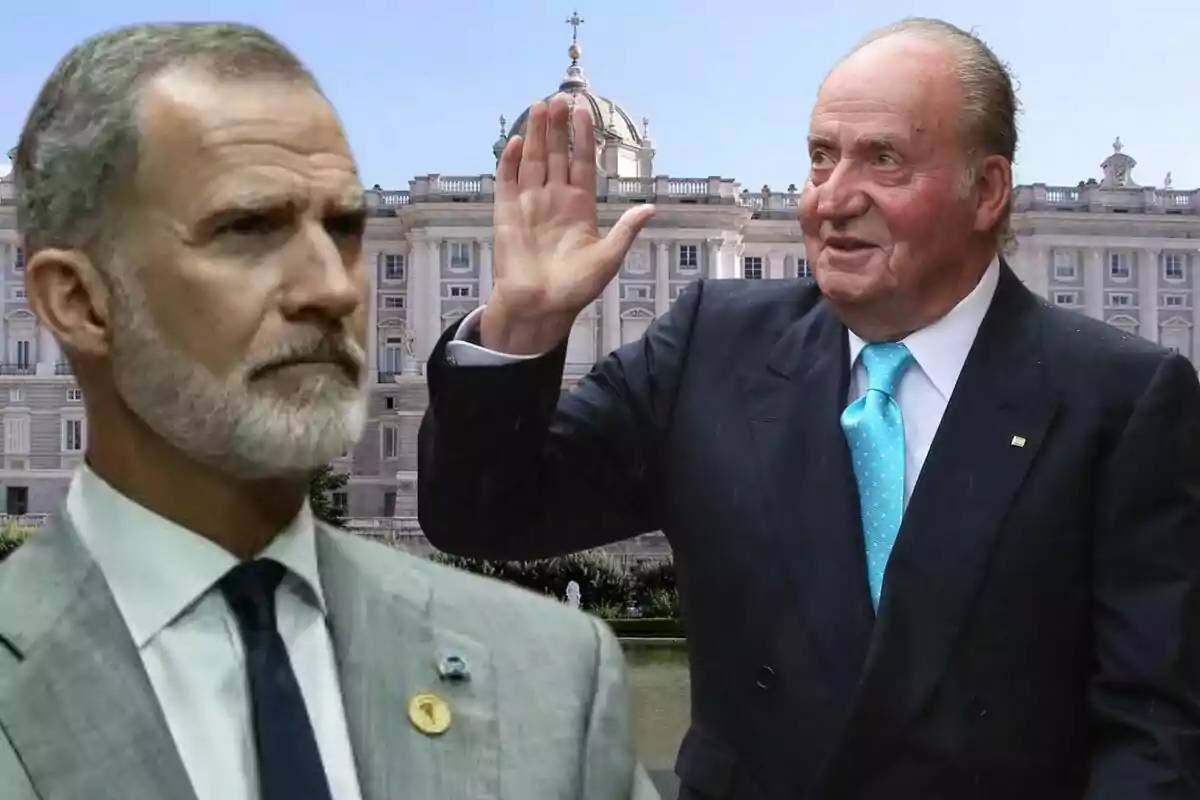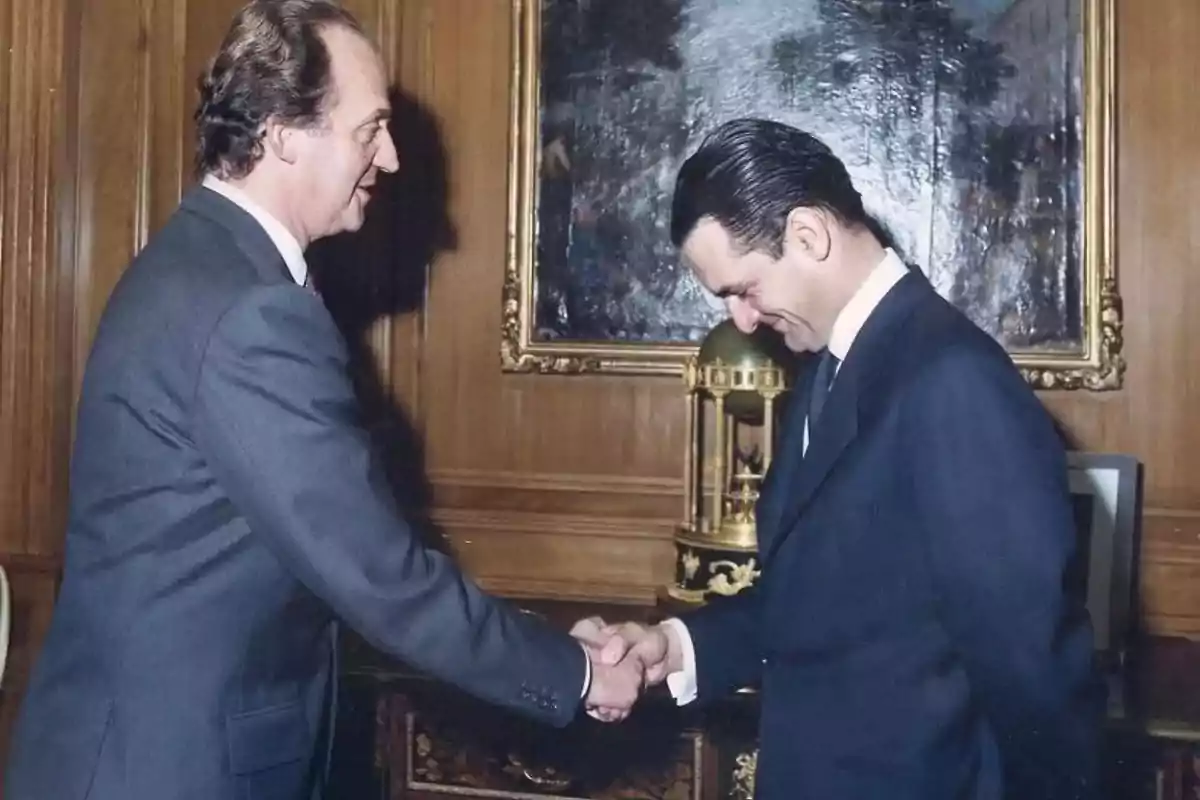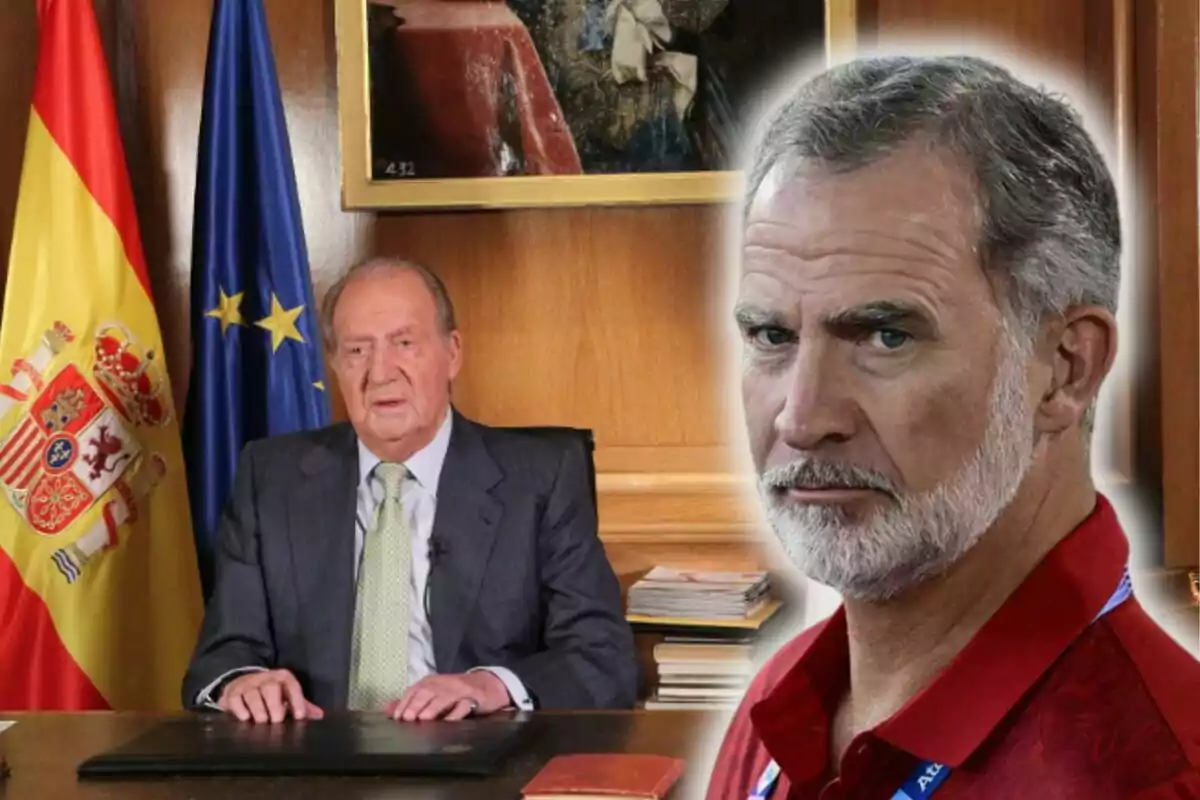The scene seemed stable. Juan Carlos I was far away, the Crown was in containment mode, and the narrative was controlled during the Balearic summer. However, something has shifted. In the corridors of Marivent and Zarzuela, a name, a date, and a fear are echoing once again. It's not just about what the emeritus wants to share. It's about who whispers to him, who accompanies him, and what interests surround him.
Since 2020, the father of Felipe VI has been living in Abu Dhabi. There, he has built a small circle that is now under closer scrutiny.
This isn't a judicial move or a police operation. It's soft, discreet, and determined control, aimed at minimizing damage before a fall that could tarnish the institution's image. The monarchy is trying to shield itself, although it always acts too late when the shadow is that of its recent past.

The tightening around the emeritus's friends in Abu Dhabi
The concern doesn't arise out of nowhere. In Zarzuela, it is privately acknowledged that there are companions who don't help. It is perceived that the emeritus makes decisions alone and that his inner circle reinforces that drift. The internal message is clear: identify problematic friends, cut off access, and reduce the former head of state's exposure at public or private events that could be interpreted as provocation.
It's an unofficial "blacklist," made up of names that pose a reputational risk for the Crown. There is no statement, but there are instructions: fewer photos, fewer trips, and zero surprises. In recent days, this concern has returned to the forefront due to Juan Carlos's own editorial agenda.
The book that irritates Zarzuela and the battle for November 12
The publication of his memoirs, "Reconciliation," is scheduled for November 12. The date is not accidental: it coincides with the fiftieth anniversary of Franco's death and with the anniversary of Juan Carlos I's proclamation, which was made official three days later.

Sources consulted by specialized analysts describe unease in the Royal Household over the timing and the desired tone of the text. Adding to this concern is a plan by the emeritus to present them in person in Madrid, a possibility that the government and Zarzuela want to prevent in order to avoid a global media spectacle that would overshadow the current monarch. The project, coordinated literarily by Laurence Debray and published by Planeta, adds fuel to the tension between father and son.
Abdul Rahman El Assir, the friend who causes the most discomfort and why
Among the names mentioned, one stands out for its explosive nature: Abdul Rahman El Assir. The relationship between the Spanish-Lebanese businessman and Juan Carlos I goes back a long way and has been rekindled in the Emirates. Interpol requested his arrest from Abu Dhabi in 2021 and 2022 for fraud and other investigations, while witnesses placed him accompanying the emeritus.
This link, thoroughly documented, is the best explanation for Zarzuela's current closing of ranks: this isn't gossip, but the confirmation that certain companions add risk to every move the former monarch makes. In social chronicle media, an underground "war" with the El Assir clan has even been described, with the aim of removing him from the emeritus's sphere of influence.
Official silences and a fall of high institutional voltage
There is no public confirmation of a "blacklist," nor will there be. The Royal Household avoids getting into the mud and limits itself to distancing itself from the past, while Felipe VI keeps the official agenda. However, the strategy is clear: get rid of old ghosts before "Reconciliation" reopens wounds and rewrites the narrative. If the emeritus manages to appear in Madrid, the clash will be inevitable. If he doesn't, the book will have already fulfilled its purpose of putting him back at the center of the debate, precisely where the institution least wants him.

This isn't the first time Juan Carlos I has had what are known as "dangerous friendships." In the past, other figures from Spanish public life such as Manuel Prado y Colón de Carvajal or Mario Conde received this label.
Sabino Fernández Campo, who was Secretary General and later Head of the Royal Household, had to deal with all these problems and "friends." It wasn't easy for him at a time when the Bourbon was amassing power and had the press completely tamed.

